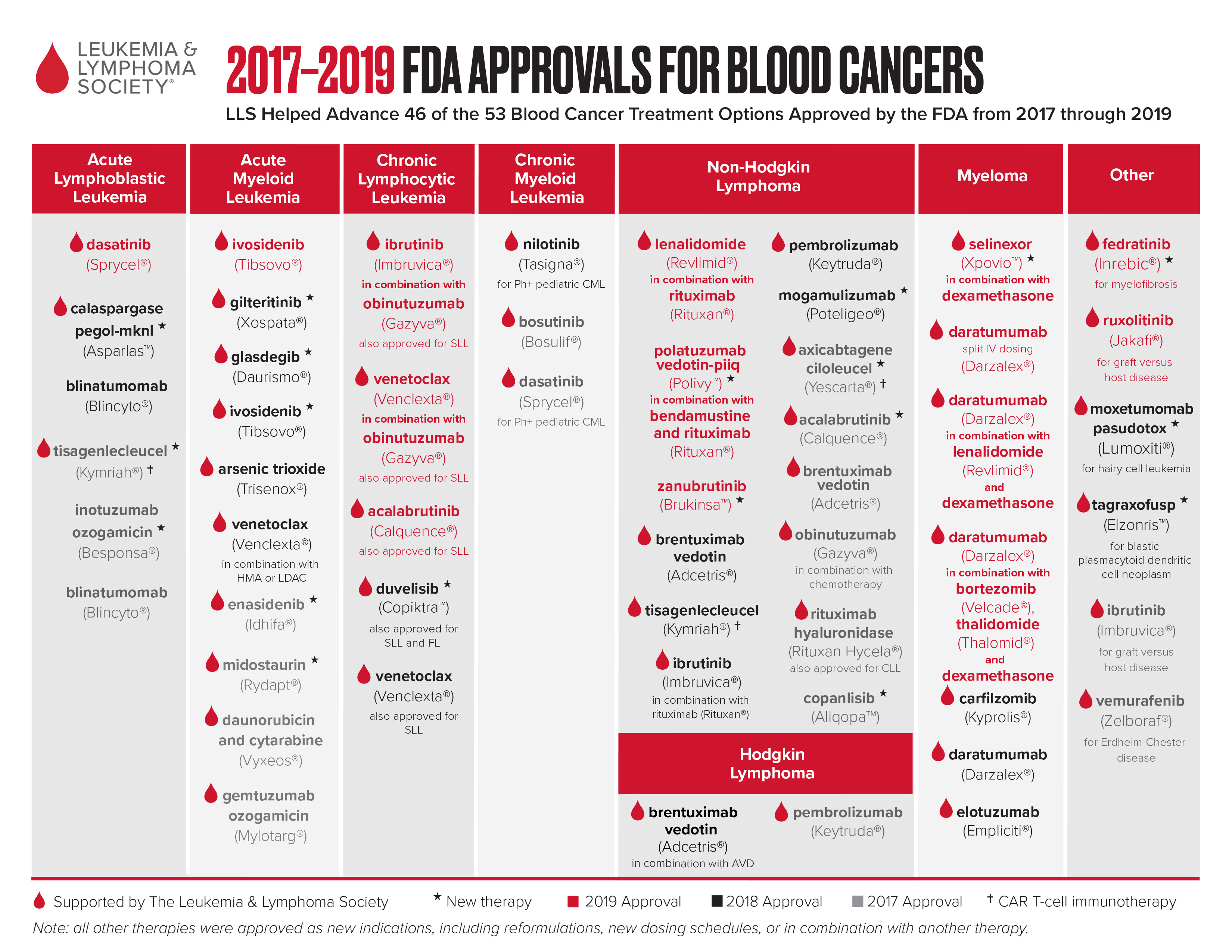
Driving forward science
While we all are navigating uncertainty and challenges in these unprecedented times, there is promising news: science is racing forward. Dedicated researchers around the world are collaborating in new ways, sharing data openly and advancing our understanding of the novel virus that causes coronavirus disease (COVID-19). In fact, more than 70 countries have joined the World Health Organization in accelerating research on effective treatments for COVID-19 and about 20 institutions and companies are pushing to develop a vaccine. What’s more, numerous drugs initially approved by the U.S. Food and Drug Administration (FDA) to treat blood cancers are now being explored to control the hyperimmune response to COVID-19. LLS-funded researchers are bringing these COVID-19 trials to the forefront. You can read some of the latest scientific papers on COVID-19 here.

LLS remains as committed as ever to our mission – including staying the course with our investment in cutting edge blood cancer research around the globe. We’re proud to support our global community of pioneering researchers who are adapting and innovating in this new normal. To inspire blood cancer patients, families, researchers, healthcare professionals, volunteers and supporters everywhere, I’d like to reflect on how far we’ve come in treating blood cancers in the past three years alone, thanks to the tireless work of LLS-funded researchers who are relentless for cures.
Reflecting on progress
A similarity struck me while I was reading the new Thomas Edison biography by Edmund Morris. In 1877, Edison discovered a way to record and play back sound reliably. His invention, the phonograph, astonished the public. Morris writes “when Edison applied for a patent, its originality so stunned the examiners at the Patent Office that they issued one without question, not having any precedent to judge the instrument.” Newspapers at the time described his breakthrough as “a marvelous discovery” and “a triumph of scientific research.”
In 2017, we experienced our own astonishing scientific advancement when the first two CAR (chimeric antigen receptor) T-cell immunotherapies were approved by the FDA. The New York Times hailed the news as “a milestone expected to transform treatment.” Carl June, MD, University of Pennsylvania, who pioneered the therapy with LLS support, was honored in TIME Magazine’s “100 Most Influential People in the World.”
The Leukemia & Lymphoma Society has invested nearly $1.3 billion in blood cancer research worldwide since 1949, and this includes a more than 20-year investment in research that bolstered this revolutionary approach, which supercharges a patient’s own immune cells to attack cancer. And now, we are advancing the next generation of CAR T-cell therapy. Learn more in our Annual Report.
Since 2017, we’ve seen incredible progress for patients. Of the 53 blood cancer treatment options approved by the FDA over the past three years (2017-2019), 18 are new drugs – approved for the first time in the U.S. – and represent significant advances in patient care. At the same time, previously approved therapies are gaining new indications at a rapid rate.

The bottom line? More treatment options are reaching more blood cancer patients in urgent need.
Here are six key takeaways:
1. AML treatment leaps forward. Since 2017, 10 treatment options – all advanced with LLS support – have been approved for acute myeloid leukemia (AML), ending a 40-year drought in new therapies. Researchers are homing in on the specific genetic and molecular drivers of the disease. An example is gilteritinib (Xospata®), the first drug approved specifically for treating patients with relapsed or refractory FLT3 mutation-positive AML, a mutation associated with particularly poor prognoses.
2. Combination therapy takes off for myeloma. Research is showing that some treatments work better when used together than alone. In 2019, the FDA approved several combinations of therapies for myeloma – doubles, triplets and even quadruplets. LLS continues to invest in research to unlock the right combinations of treatments in order to improve outcomes and care for patients with myeloma. Learn about the latest approval for myeloma here.
3. Progress for non-Hodgkin lymphoma (NHL). Bruton tyrosine kinase (BTK) inhibitors are transforming treatment of B-cell lymphomas by targeting a protein involved in maintaining the survival and growth of lymphoma cells. For example, two new BTK inihbitors, acalabrunitib (Calquence®) and zanubrutinib (Brukinsa™) have been approved to treat mantle cell lymphoma after at least one prior therapy. BTK inhibitors are also game changers for patients with chronic lymphocytic leukemia (CLL). What’s more, the CAR T-cell therapy, axicabtagene ciloleucel (Yescarta®), is a breakthrough for patients with certain types of aggressive NHL whose disease relapsed or did not respond to previous treatment. While CAR-T is approved only for acute lymphoblastic leukemia and large B-cell NHL, it is showing great promise for patients with other types of blood cancers, including CLL, mantle cell lymphoma, and myeloma.
4. The rise of “chemotherapy-free” regimens. Chemotherapies destroy cancer cells, but also damage normal cells, causing substantial side effects. Today, more recently approved oral targeted therapies attack blood cancer cells specifically, while sparing healthy cells with impressive results. For example, the FDA-approved combination of venetoclax (Venclexta®) and obinutuzumab (Gazyva®) marks a new chemotherapy-free, front-line treatment for CLL. LLS has supported research advancing venetoclax for the past 15 years.
5. Advances for ultra-rare diseases. Ultra-rare diseases represent fewer than 1,000 cases in the U.S. per year, and in some cases, standard treatments might not exist. This is changing. Tagraxofusp (Elzonris™) is a new therapy approved for adults and pediatric patients with blastic plasmacytoid dendritic cell neoplasm (BPDCN), an aggressive, deadly disease that lacked a standard of care. LLS sponsored clinical trials for this novel targeted therapy through our Therapy Acceleration Program.
6. The LLS Therapy Acceleration Program (TAP), a venture philanthropy model, is delivering major value to blood cancer patients. Since the inception of TAP over 10 years ago, LLS funding has played a pivotal role in the FDA approval of three first-in-class blood cancer therapies. Most recently, the acquisition of Forty Seven, Inc. (an LLS-funded company), by Gilead Sciences, Inc. for $4.9 billion has supercharged efforts to advance Forty Seven’s novel antibody for leukemia and lymphoma.
